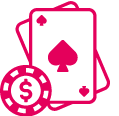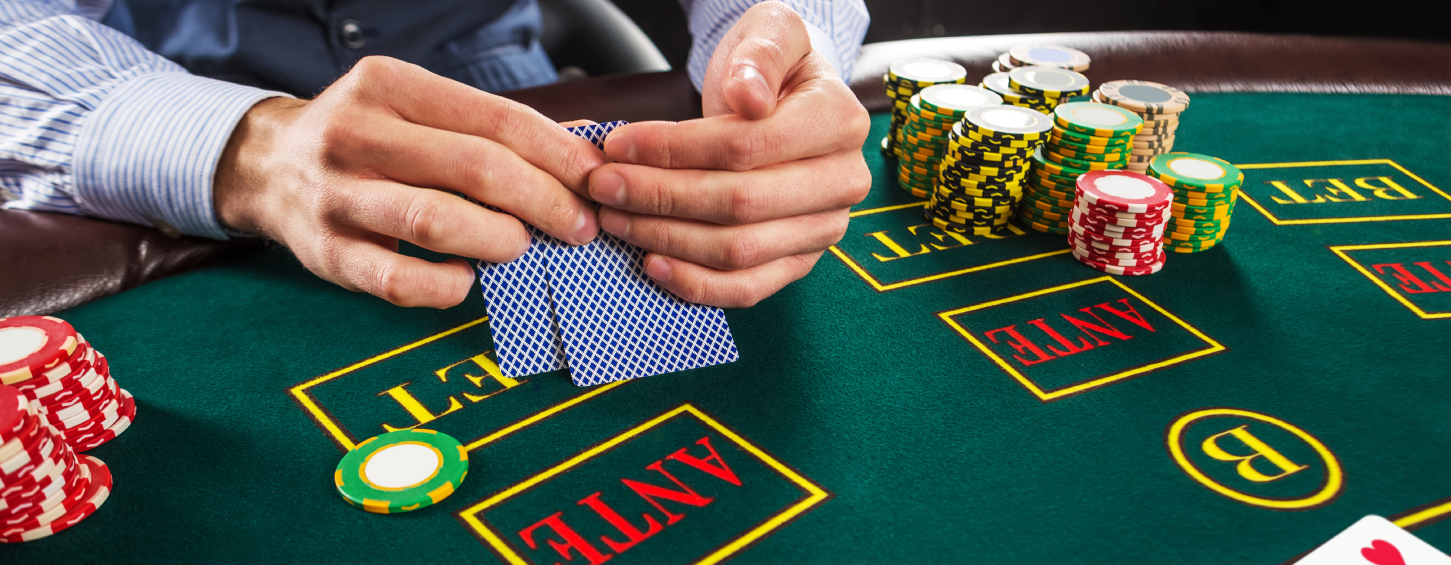Essentia CEO Clare Flynn Levy talks to former top-20 online poker player (and Behavioral Alpha Poker Night host) Chris Sparks about the lessons investment professionals can learn from elite-level poker.
Share post

A high-stakes professional poker player and peak performance coach, Chris Sparks became one of the top 20 online players in the world. His company, The Forcing Function, gives investors and executives a competitive edge so that they too can excel at the highest limits.

Clare Flynn Levy is CEO & founder of Essentia Analytics. Prior to setting up Essentia, she spent 10 years as a fund manager, in both active equity (running over $1bn of pension funds for Deutsche Asset Management), and hedge (as founder and CIO of Avocet Capital Management, a specialist tech fund manager).
CFL: Hi Chris. We’re really looking forward to having you host Poker Night at Behavioral Alpha 2019!
Let’s start with the path that brought you here. You studied marketing and psychology in college, then after graduation became a professional poker player, and then a performance coach — not a typical career progression! Tell us how this came about …
CS: I paid my way through college playing poker. I originally started because it’s what we did when hanging out in the dorm on the weekends. I quickly discovered I had a knack for it — and by senior year, I had paid off my tuition and built up a nest egg.
My dream growing up was to make TV commercials. I was very interested in consumer behavior growing up and I majored in marketing and psychology. In my senior year, I appeared on a reality show sponsored by Ford (“Quad Squads”, pitting Ohio State vs U Michigan on selling the most cars on campus) — we won, and they offered me a job in brand advertising in Detroit after graduation.
My timing could have been better. It was 2008, and in the month between my graduation and my scheduled start date, the auto industry collapsed and the government forced hiring freezes. I had moved to Detroit, didn’t know anyone and didn’t have any responsibilities. I decided to see what it would be like to focus on poker full-time.
What started as a one-month gap carried on for six months. During that time, I won $135k in a tournament and was playing bigger cash games where I was making the annual salary I had been promised at Ford on a regular basis. Not wanting to be fiscally irresponsible, I turned the job down and moved to LA, where I split a mansion with five poker friends. We made it our sole focus to hone our poker skills and rise through the ranks together.
Within a year and a half, I was ranked in the top 20 of online cash game players in the world. At that point, I was 22 years old and I was making more money than I knew what to do with, so I reinvested it in a stable of promising players who I trained on strategy and peak performance — similar to what I do now. I underwrote the players’ downside and took a cut of their upside. It worked well — 85% of them made me money.
But in 2011, the US online poker industry got shut down by the Feds. At that moment, half of my net worth was sitting with one of the major poker websites. This site had a run on the bank and the remaining assets were seized. I had to ask myself whether I wanted to stay devoted to poker and relocate abroad to keep playing or redirect my energy into something else here. I went traveling around the world for a year to cross off some items on my bucket list while I figured it out.
I was sitting in a bungalow in Thailand when I unexpectedly received my poker money back from the U.S. government. That was a pivotal moment for me. I was suddenly in a position to be able to make whatever career choice I wanted. The people whom I most admired in the poker world were those who had used poker as a platform to become entrepreneurs and investors, putting new things into the world or empowering others to do so. I realized that the skillset I had developed to become one of the best poker players was very valuable in helping other people perform at a higher level in their professions.
CFL: What makes you a great poker player?
CS: My edge as a poker player is both data-driven and psychological. When playing online, there is an abundance of competitive data available to analyze. I am adept at uncovering the key factors predicting future behavior and then crafting a robust, exploitative strategy on the back of 
Poker careers are made or broken with the quality of a player’s mental game. I have seen hundreds of players with more raw talent than me come and go over the years due to a single lapse of discipline. Once you reach the top, there is no margin for error.
CFL:Why would clients work with you as a performance coach?
CS: Simply put, I have a deep understanding of what it takes to become one of the best in the world at something and a strong track record in accelerating the process for others.
I emphasize systems over motivation. I make any abstract goals quantitative and create objective milestones to track progress towards those goals. We identify correlations: what are the critical habits driving performance? All behavior is treated as an experiment, thus the title of my book, Experiment Without Limits. Once these habits are identified, it is an iterative process of stabilizing and then building upon that foundation.
CFL: And why is poker relevant to the investment professionals attending Behavioral Alpha?
CS: I think the game of poker is an excellent training ground for investors and has incredibly important lessons to teach them. The game of poker, just like investing, is making a series of predictive bets with incomplete information.
- Your strong hand is facing fierce resistance… can you recalibrate in the face of new information?
- The river is revealed to be the worst card in the deck for your hand… can you stay in the game?
- No playable hands for hours… can you avoid reaching for yield?
- An unknown opponent sits down at the table … do you deeply understand who is on the other side of your bets?
Just like at the poker table, the best investors are able to quickly assess the source and magnitude of their situational advantage and size their bets accordingly.
CFL: Thanks, Chris – we’re looking forward to learning some of your tactics on November 8th!

Chris will host Poker Night at Behavioral Alpha – New York on Friday, November 8. Click here for tickets.


